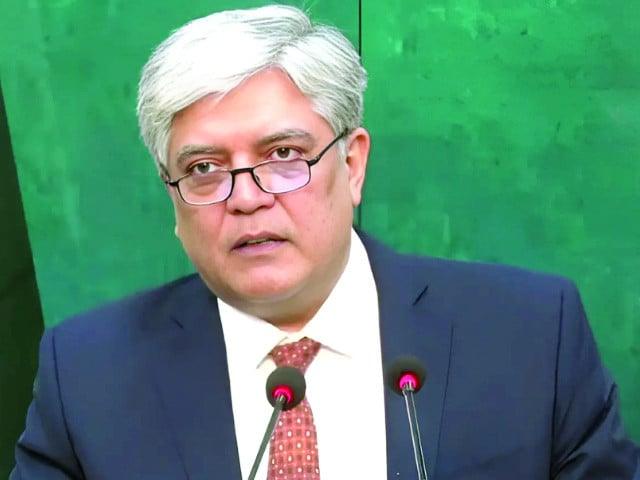Pakistan’s Foreign Office has condemned India’s aggressive military actions and hostile diplomatic attitude and held New Delhi responsible for its reckless unilateral aggression, conscious targeting against civilian and obvious violations of international treaties.
The Foreign Office’s spokesman Shafqat Ali Khan declared that India has acted “as a judge, jury and executioner”, launch of cross-border attacks based on non-verified social media accounts.
He said such actions were in clear violation of international norms and posed a serious threat to regional peace.
The FOs also said that studies of Patkhankot and Mumbai attacks could not move forward because of India’s persistent non-cooperation, which undermines the pursuit of justice.
He added that although India levels accusations against others, it consistently ignores its own documented role in the destabilization of the region.
The spokesman claimed that Kulbhushan Jadhav, a serving Indian navy commander trapped in Pakistan, remains a living proof of Indian involvement in terrorist activities in Pakistan.
He also quoted the Samjhauta Express bombing, resulting in the death of innocent civilians, including children, and involving Hindu extremists attached to India’s reigning party.
By rejecting India’s claim to target militant infrastructure, he said the strikes resulted in the martyr’s death for civilians, including women and children.
He noted that mosques and the Neelum dam were among the goals and called it a deliberate attack on Pakistan’s population. “India must be held responsible,” he said.
In a comment on the water, the spokesman said the Indus Waters Treaty had been the test of the time, but India’s current suspension of its obligations was “illegal” and reflected an “obviously ignoring international treaties.” He emphasized that Pakistan is an agricultural country with a largely agricultural economy, saying that India’s actions constituted an open attack on both Pakistan and its people.
He also threw the Indian Foreign Secretary’s recent remarks and called them outdiplomatic and irresponsible. “We regret the use of such a language. Better was expected,” he said, adding that the Indian government has developed a pattern to make “absurd and baseless claims.”
He also noted that India himself took Kashmir to the United Nations, but now refuses to honor his obligations.
“India remains a key source for instability in South Asia, after blocking any serious efforts against regional cooperation,” he added.
Latest tension
The latest escalation in tension between India and Pakistan follows on April 22 -attack in Pahagam, Indian illegally occupied Jammu and Kashmir (IIOJK), resulting in 26 deaths. India immediately accused Pakistan-based elements of orchestration of the attack, although no evidence was presented. Islamabad has strongly rejected these claims.
By retaliation, India closed the Wagah Land border on April 23, the Indus Waters Treaty suspended and recalled Pakistani Visa. Pakistan responded by tagging any disturbance of the water flow as an “act of war” and closed the Wagah junction on its side.
The situation escalated further on Wednesday when reports from different cities in Pakistan, including Muzaffarabad, Kotli, Murideke and Bahawalpur, detailed more explosions. Pakistan’s military spokesman, LT Gen Ahmed Sharif Chaudhry, confirmed that Indian air strikes had targeted several locations in Pakistan. In response, Pakistan launched fast air and soil operations.
Within the first hour’s retaliation, Pakistan announced the downturn of five Indian fighter jets, including four Rafale aircraft that India had recently acquired from France to strengthen its air defense following the failed Balakot operation in 2019.
“Pakistan could have shot down 10 Indian fighter jets,” Lt Gen Chaudhry said during a press of briefing. “But Pakistan chose to exercise restraint.”
Despite the extent of the reaction, Indian media remained largely silent on the losses. Hindu, a prominent Indian newspaper, initially reported that three Indian jets had been discontinued, but later removed the article, probably under pressure from the Indian government to avoid further embarrassment.
An American commentator at CNN stated that the potential loss of Rafale jet aircraft would harm India’s claim of air superiority, as it had built around the induction of these advanced French warplanes. Some experts speculated that the confrontation served as a test of Chinese and Western military technologies, especially after Pakistan acquired the J-10C jet from China in response to India’s Rafale fleet.
A senior French intelligence officer confirmed to CNN that a Rafale jet had actually been shot down by Pakistan, which first marked this sophisticated French aircraft had been lost in battle.
In another development, the Pakistani armed forces confirmed the neutralization of 25 Israeli -made harrebrones used by India in recent cross -border activity.
A statement issued by Pakistan’s Inter-Services Public Relations (ISPR) confirmed on Thursday that these drones were shot down using both electronic countermeasures (Soft-Kill techniques) and conventional weapons (hard-kill systems) after being discovered flying across several areas over Pakistan.
ISPR described the drone penetration as a “desperate and paniced reaction” of India, which came after Pakistan’s retaliatory operations on May 6 and 7, where five Indian fighter jets were shut down and several military positions were beaten.
Untilized by the Israeli made armed drones, called “Loitering ammunition”, sent by India over several cities in Pakistan, including Karachi, residents of Metropolitan City are poured out onto the streets of an extraordinary wave of solidarity with the armed forces.
The number of Indian drones closed down by Pakistani armed forces had reached at least 77, confirmed security sources on Friday.



